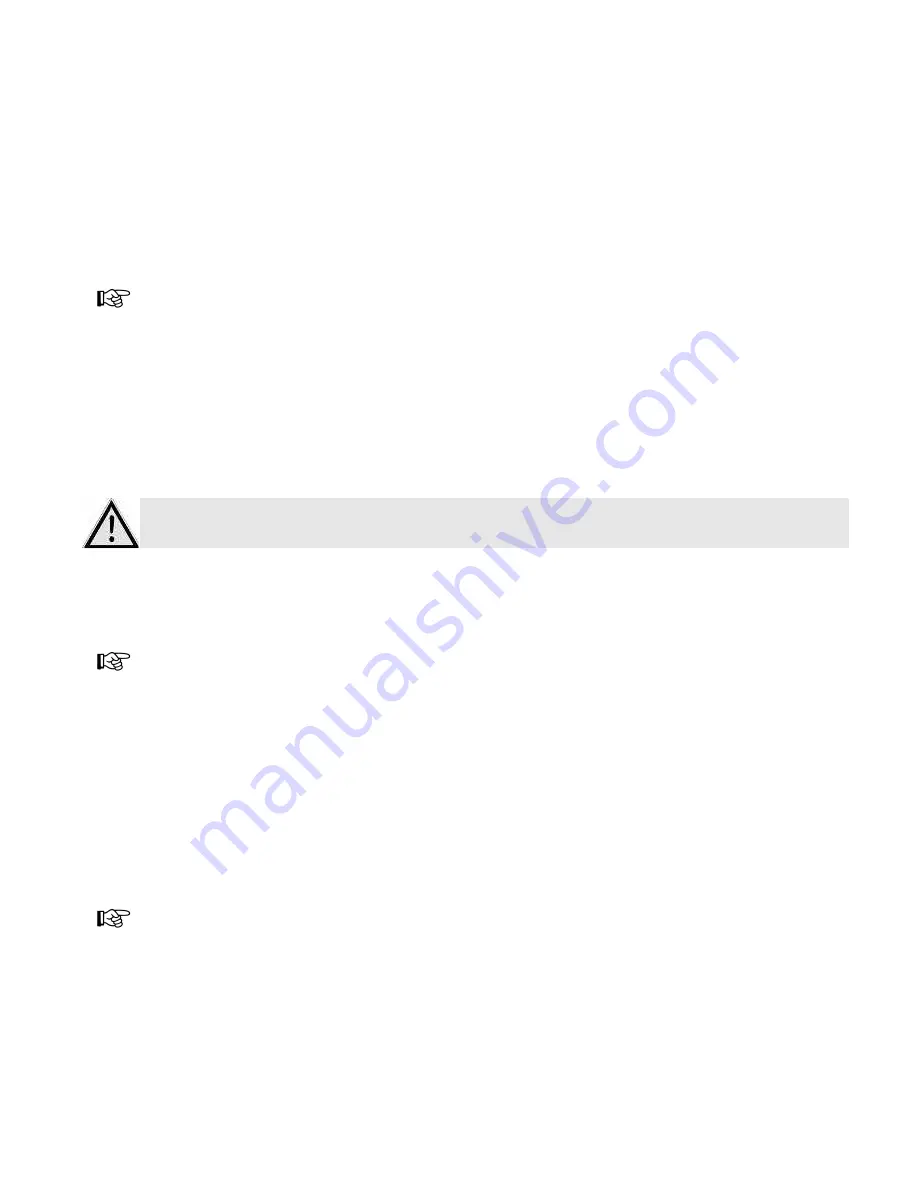
14
Assembly
1. Fasten the carrying strap [5] on the tank [1].
(Figs. 2a + 2b)
2. Screw the pressure hose [3] securely into the outlet opening [8] with a size 16 (metric)
wrench.
(Figs. 3a + 3b)
3. Screw the spray lance [6] onto the shut-off valve [4].
(Figs. 3a + 3b)
4. Close the cover (
→
chapter entitled "Preparation", Points 6 - 7, Fig. 7)
Checks
Visual inspection:
Are the tank [1], pump [2], pressure hose [3] with shut-off valve
[4], pressure gage [15] and spray lance [6] undamaged?
(Figs. 1, 9)
Pay special attention to the connections between the tank – pressure hose and the pressure
hose – shut-off valve and to the condition of the pump thread and pressure hose.
No leaks:
Pump up the empty device to 2 bar.
►
The pressure must not decrease more than 0.5 bar within 30 minutes.
Function:
Pull the red button on the safety valve [9].
(Fig. 4)
►
The pressure must dissipate.
Activate the shut-off valve [4].
(Fig. 13)
►
The shut-off valve must open and close.
Making preparations
Observe the instructions in the section entitled "Safety".
1. Pull up the red button on the safety valve [9] until all excess pressure is released from
the tank.
(Fig. 4)
2. Raise the locking cap [10], tilt the cover [11], screw it in a clockwise direction and take
out of the filling opening.
(Fig. 5)
3. Hook the cover [10+11] onto the spray lance holder [12].
(Fig. 6)
We recommend you mix the spraying liquid in the device or premix it in an external tank:
Fill to 1/3 with water, pour in the spraying agent, and then add more water until full.
4. Add the spraying liquid to the tank.
(Fig. 6)
5. Check the filling height on the scale stamped on the tank [13].
(Fig. 6)
6. Insert the tilted cover [12] into the filling opening and rotate the cover in a counter-
clockwise direction.
(Fig. 7)
7. Tighten the cover in the tank upwards onto the filling opening and fold down the locking
cap [10].
(Fig. 7)
►
Filling opening is sealed.
(Fig. 7)
8. Press the pump handle [14] down and turn it clockwise.
►
The pump handle is unlocked.
(Fig. 8)
9. Create the desired pressure
(
→
Table 2, next page)
in the tank
(Fig. 9).
The maximum pressure should not exceed 6 bar (red line on the pressure gauge [15],
Fig. 9). If the maximum pressure is exceeded, the safety valve will engage and release
the excess pressure.
10. Press the pump handle [14] down and turn it counterclockwise.
►
The pump handle is locked in place.
(Fig. 10)





























